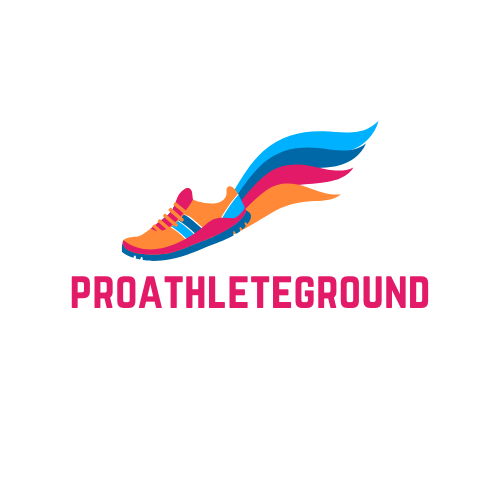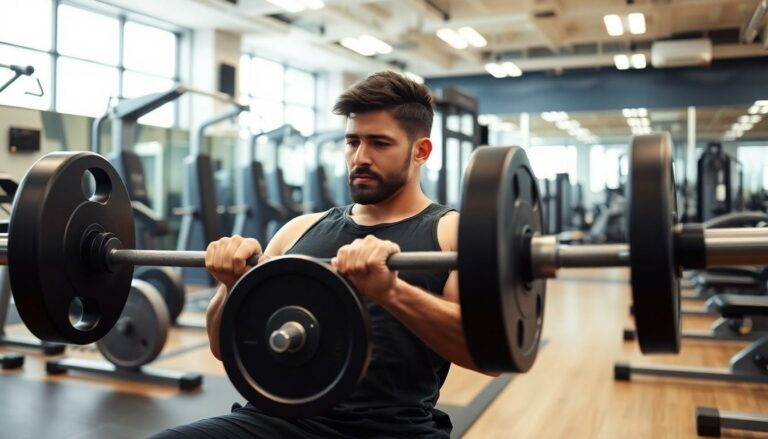Eat Before or After Workout to Build Muscle: Discover the Best Approach for Gains

When it comes to building muscle, the age-old debate of whether to eat before or after a workout can feel like trying to solve a Rubik’s Cube blindfolded. On one hand, you’ve got the pre-workout snackers, fueled by protein bars and smoothies, ready to conquer the gym. On the other, the post-workout warriors, who believe a hearty meal is the secret sauce to muscle gains. So, which side should you pick, eat before or after workout to build muscle?
Eat Before or After Workout to Build Muscle
Nutrition plays a crucial role in muscle building. Consuming adequate nutrients supports recovery and growth. Proteins, carbohydrates, and fats work together to maximize results from workouts.
Protein provides essential amino acids, which repair muscle fibers damaged during exercise. Studies show that consuming around 20 to 30 grams of protein post-workout enhances muscle protein synthesis. This serves to stimulate muscle growth effectively.
Carbohydrates replenish glycogen stores depleted during intense workouts. They fuel both performance and recovery. Ideally, athletes should consume complex carbohydrates, such as whole grains and fruits, to sustain energy levels.
Fats also contribute to overall nutrition. Healthy fats, found in foods like avocados and nuts, aid in hormone production critical for muscle growth. Balancing macronutrients optimizes overall health and wellness.
Pre-workout nutrition ensures energy availability. Eating a snack or meal rich in carbohydrates and protein approximately 30 to 60 minutes before exercising can improve performance. This strategy primaries energy use and enhances strength output.
Post-workout meals or snacks should contain both protein and carbohydrates. Consuming this combination within 60 minutes after a workout maximizes recovery processes. Research indicates that prompt nutrient timing provides the best results for muscle repair and growth.
Hydration remains vital alongside nutrition. Water keeps muscles functioning efficiently during workouts. Dehydration can impair performance and recovery, highlighting the importance of fluid intake before and after exercising.
Maintaining a balanced diet tailored to fitness goals fosters muscle gains. Tracking nutrient intake can help fine-tune dietary habits, ensuring proper support for muscle building activities. Prioritizing these nutritional factors contributes significantly to overall fitness success.
Eating Before a Workout

Eat before or after workout to build muscle? Eating before a workout plays a vital role in muscle building. Proper nutrition enhances energy levels and endurance during exercise.
Benefits of Pre-Workout Nutrition
Pre-workout nutrition improves performance and supports metabolic processes. Energy from the right snacks helps sustain workout intensity. Consuming carbohydrates boosts glycogen stores, which are essential for high-intensity exercise. Protein intake prior to workouts aids in minimizing muscle breakdown. Additionally, studies show that pre-exercise food consumption can enhance muscle protein synthesis. Optimized pre-workout meals also reduce fatigue and improve recovery time.
Ideal Pre-Workout Foods
Ideal pre-workout foods combine carbohydrates and protein for maximum benefits. Options such as oatmeal with yogurt or a banana topped with peanut butter provide essential nutrients. Greek yogurt, protein shakes, and smoothies also serve as effective choices. Focus on consuming these foods 30 to 60 minutes before exercising. Small portions, approximately 20 to 30 grams of carbohydrates and 10 to 15 grams of protein, deliver optimal results. Hydration before workouts remains crucial, as even slight dehydration can hamper performance.
Eating After a Workout
Eat before or after workout to build muscle? Eating after a workout plays a vital role in muscle recovery and growth. Consuming the right nutrients helps the body repair itself and restore energy levels.
Benefits of Post-Workout Nutrition
Post-workout nutrition enhances recovery by providing essential nutrients. Research shows that protein intake of 20 to 30 grams improves muscle protein synthesis significantly. Carbohydrates also play a crucial role, as they replenish glycogen stores essential for energy. In addition, consuming nutrients after exercising minimizes muscle soreness, accelerates recovery time, and boosts overall performance in subsequent workouts. Proper nutrition post-exercise supports not just muscle growth, but also hormonal balance, which is essential for long-term fitness success.
Ideal Post-Workout Foods
Ideal post-workout foods combine proteins and carbohydrates effectively. A smoothie with protein powder, fruit, and spinach provides an excellent blend. Greek yogurt with berries and granola serves as another powerhouse option, offering both protein and carbohydrates. Additionally, a chicken breast with quinoa and steamed vegetables offers balanced nutrition. Aim for 20 to 30 grams of protein alongside 40 to 60 grams of carbohydrates for optimal recovery. Planning meals within 60 minutes after exercising maximizes benefits and promotes effective muscle repair and growth.
When to Eat for Optimal Muscle Growth
Nutrition plays a pivotal role in muscle growth. Timing meals strategically can enhance performance and recovery.
Timing Your Meals
Pre-workout meals significantly impact workout performance. Consuming carbohydrates and protein 30 to 60 minutes prior fuels energy levels and endurance. Aim for small portions consisting of 20 to 30 grams of carbohydrates and 10 to 15 grams of protein. Post-workout nutrition directly influences recovery. Eating within 60 minutes after exercising promotes muscle repair and replenishes glycogen stores. Target 20 to 30 grams of protein and 40 to 60 grams of carbohydrates for optimal recovery benefits.
Considerations for Different Workouts
Workout intensity dictates nutritional needs. For high-intensity sessions, prioritize pre-workout snacks rich in carbohydrates and protein to sustain energy. If engaging in lower-intensity exercises, lighter meals may suffice. Post-workout nutrition also varies; endurance training may require more carbohydrates for glycogen replenishment, while strength workouts emphasize protein for muscle synthesis. Tailoring food intake to workout type ensures maximizing muscle growth and recovery efficiency.
Enhance Performance and Support Muscle Growth
Deciding whether to eat before or after workout to build muscle ultimately depends on individual preferences and fitness goals. Both pre-workout and post-workout nutrition play vital roles in muscle building and recovery. By strategically timing meals and focusing on nutrient-rich foods, individuals can enhance performance and support muscle growth.
Listening to one’s body and adjusting food intake based on workout intensity can lead to optimal results. Prioritizing a balanced diet rich in proteins, carbohydrates, and healthy fats ensures that the body receives the necessary support for recovery and growth. With the right approach to nutrition, achieving fitness goals becomes more attainable.



